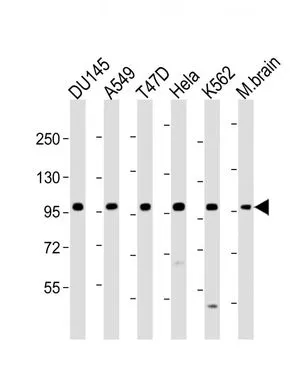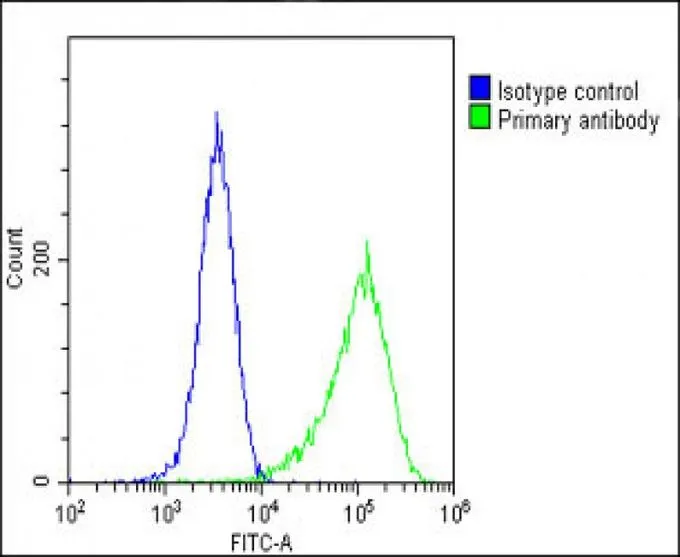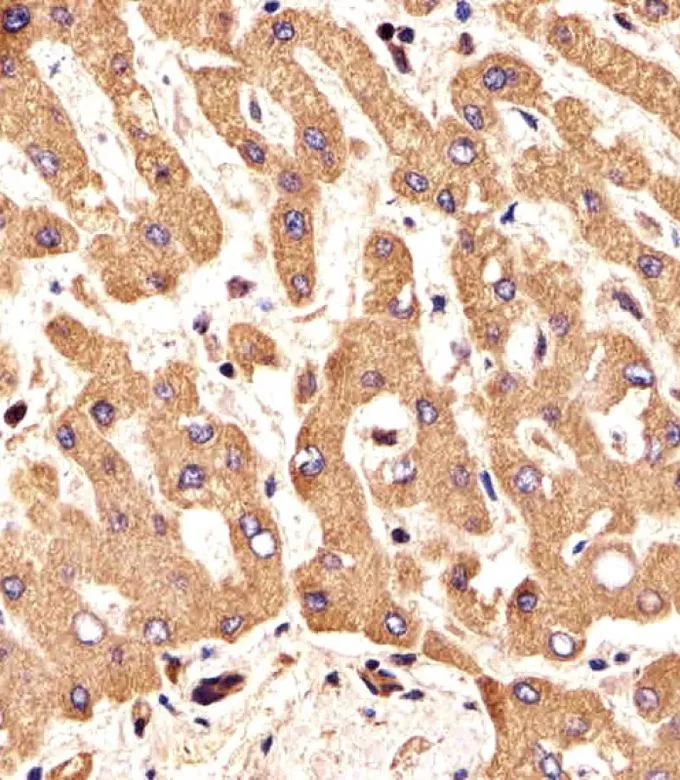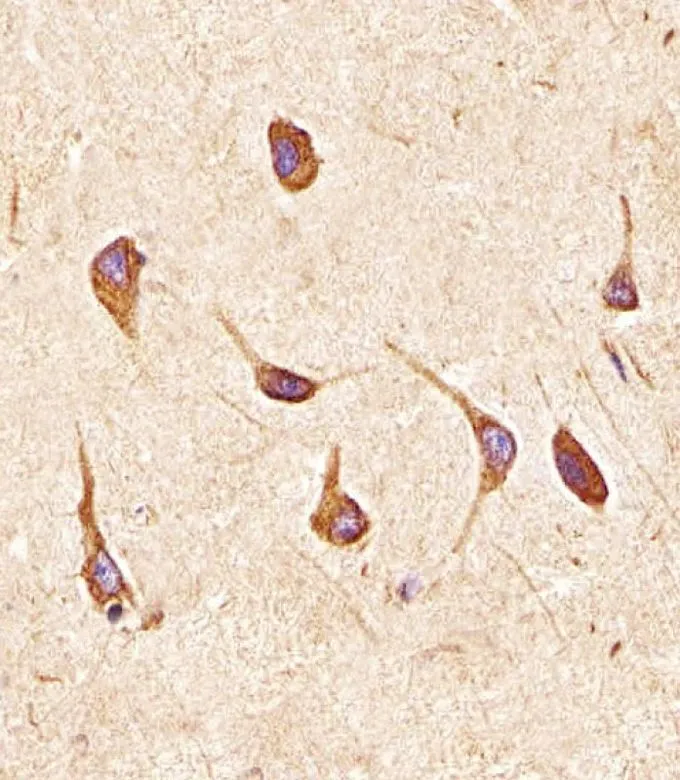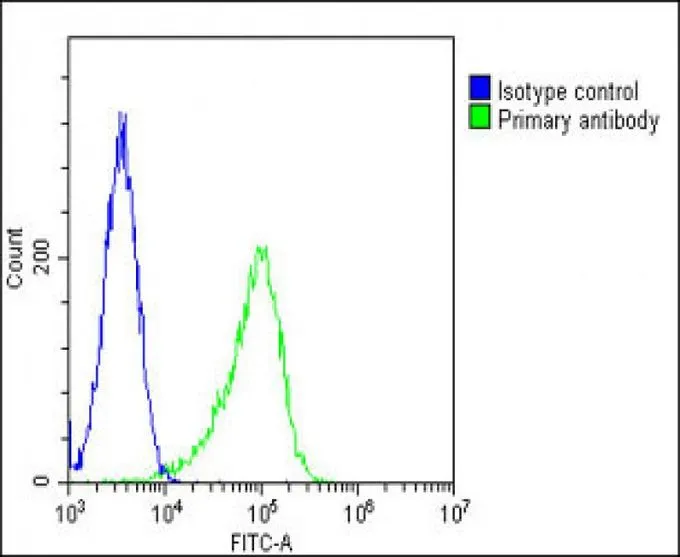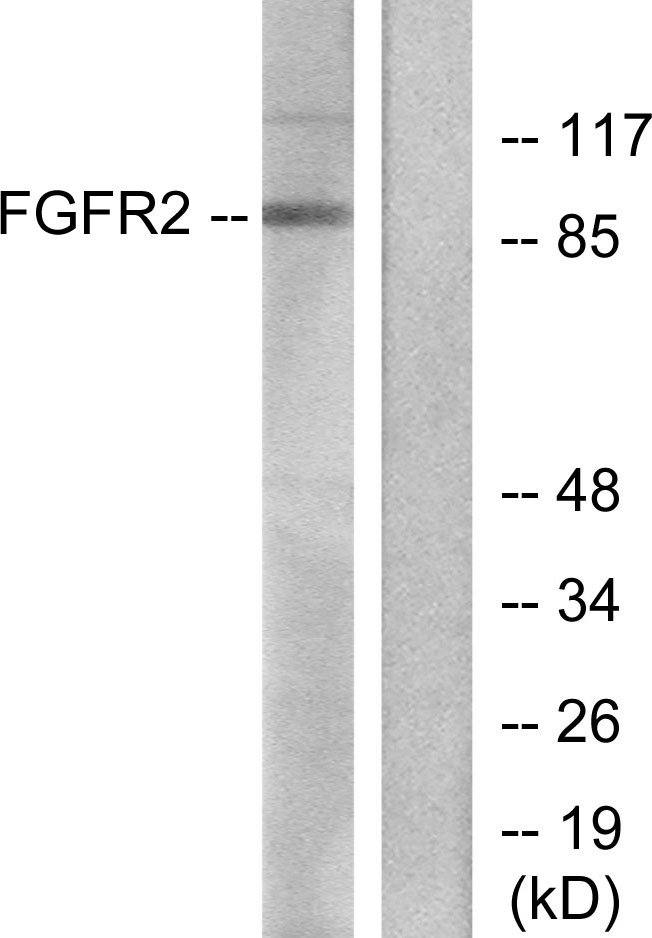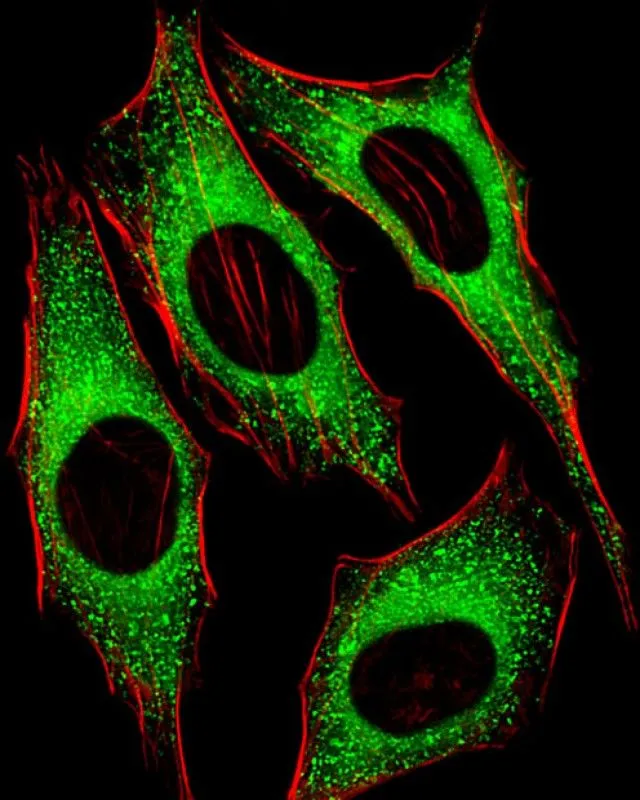
ICC/IF analysis of HeLa cells using GTX25476 FGFR2 antibody. Green : FGFR Red : Actin filament Dilution : 1:25
FGFR2 antibody
GTX25476
ApplicationsFlow Cytometry, ImmunoFluorescence, Western Blot, ImmunoCytoChemistry, ImmunoHistoChemistry, ImmunoHistoChemistry Paraffin
Product group Antibodies
ReactivityHuman, Mouse
TargetFGFR2
Overview
- SupplierGeneTex
- Product NameFGFR2 antibody
- Delivery Days Customer9
- Application Supplier NoteWB: 1:1000. ICC/IF: 1:50-1:100. IHC-P: 1:50-1:100. FCM: 1:25. *Optimal dilutions/concentrations should be determined by the researcher.Not tested in other applications.
- ApplicationsFlow Cytometry, ImmunoFluorescence, Western Blot, ImmunoCytoChemistry, ImmunoHistoChemistry, ImmunoHistoChemistry Paraffin
- CertificationResearch Use Only
- ClonalityPolyclonal
- ConjugateUnconjugated
- Gene ID2263
- Target nameFGFR2
- Target descriptionfibroblast growth factor receptor 2
- Target synonymsBBDS, BEK, BFR-1, CD332, CEK3, CFD1, ECT1, JWS, K-SAM, KGFR, TK14, TK25, fibroblast growth factor receptor 2, BEK fibroblast growth factor receptor, bacteria-expressed kinase, keratinocyte growth factor receptor, protein tyrosine kinase, receptor like 14
- HostRabbit
- IsotypeIgG
- Protein IDP21802
- Protein NameFibroblast growth factor receptor 2
- Scientific DescriptionThe protein encoded by this gene is a member of the fibroblast growth factor receptor family, where amino acid sequence is highly conserved between members and throughout evolution. FGFR family members differ from one another in their ligand affinities and tissue distribution. A full-length representative protein consists of an extracellular region, composed of three immunoglobulin-like domains, a single hydrophobic membrane-spanning segment and a cytoplasmic tyrosine kinase domain. The extracellular portion of the protein interacts with fibroblast growth factors, setting in motion a cascade of downstream signals, ultimately influencing mitogenesis and differentiation. This particular family member is a high-affinity receptor for acidic, basic and/or keratinocyte growth factor, depending on the isoform. Mutations in this gene are associated with Crouzon syndrome, Pfeiffer syndrome, Craniosynostosis, Apert syndrome, Jackson-Weiss syndrome, Beare-Stevenson cutis gyrata syndrome, Saethre-Chotzen syndrome, and syndromic craniosynostosis. Multiple alternatively spliced transcript variants encoding different isoforms have been noted for this gene. [provided by RefSeq, Jan 2009]
- ReactivityHuman, Mouse
- Storage Instruction-20°C or -80°C,2°C to 8°C
- UNSPSC41116161
References
- Runx2 is required for the proliferation of osteoblast progenitors and induces proliferation by regulating Fgfr2 and Fgfr3. Kawane T et al., 2018 Sep 10, Sci RepRead this paper
- The FGFR/MEK/ERK/brachyury pathway is critical for chordoma cell growth and survival. Hu Y et al., 2014 Jul, CarcinogenesisRead this paper
- Targeting FGFR4 inhibits hepatocellular carcinoma in preclinical mouse models. French DM et al., 2012, PLoS OneRead this paper

